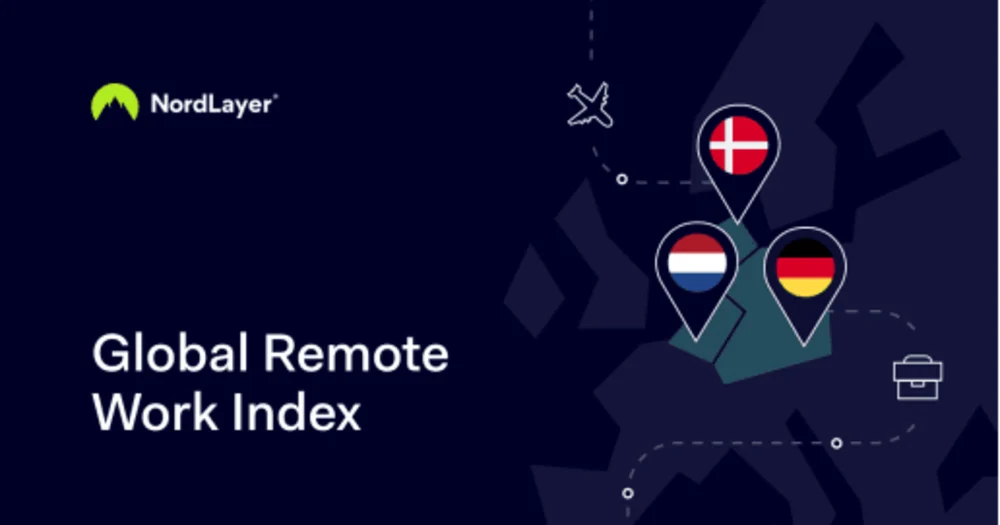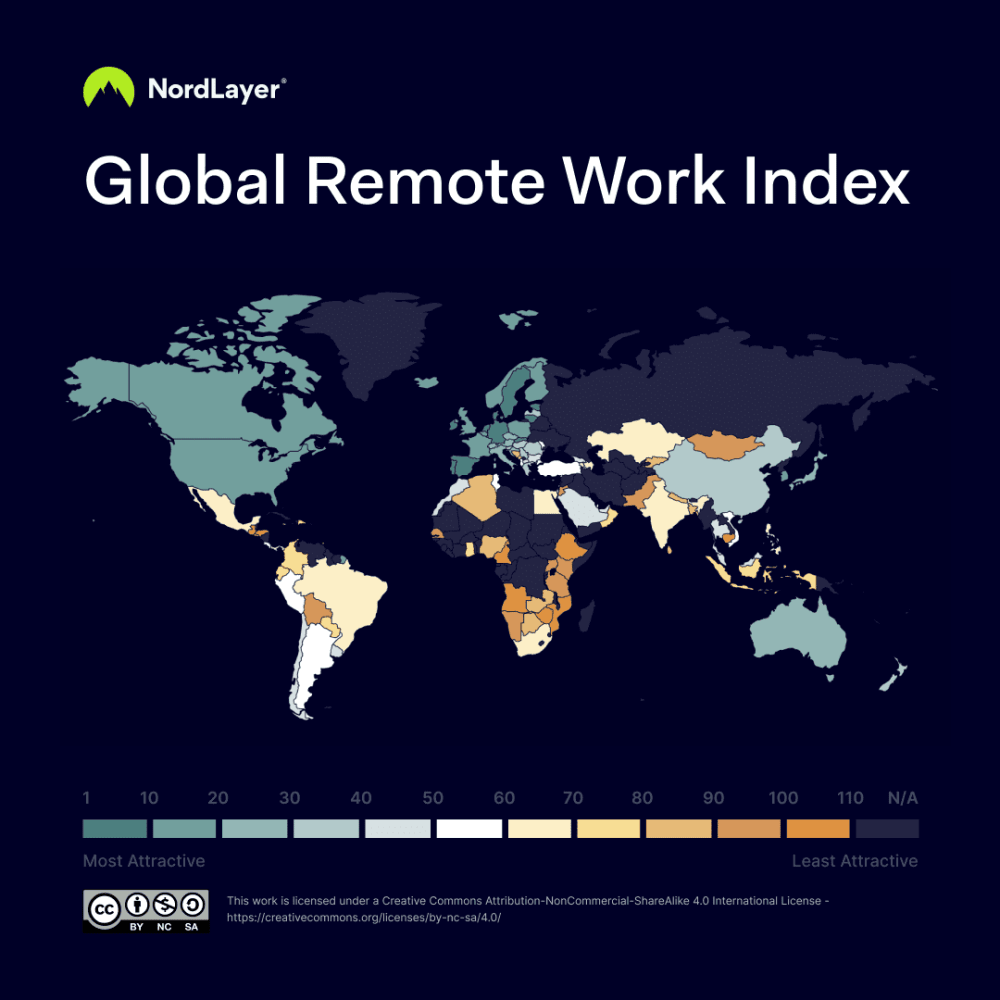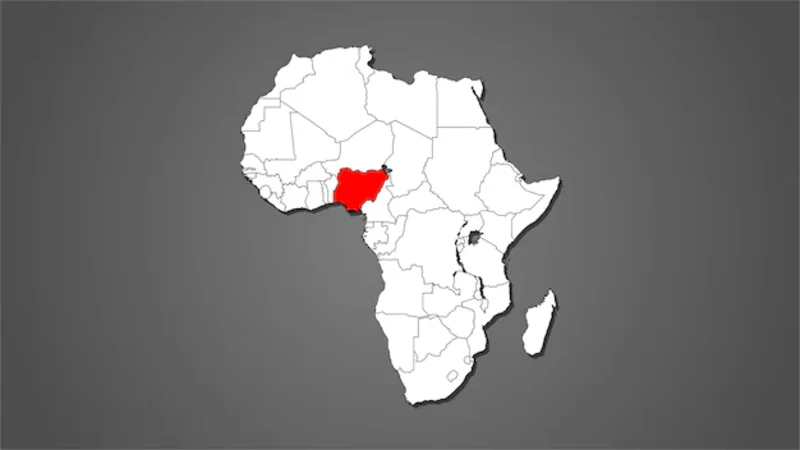
A recent study by cybersecurity firm NordLayer has revealed that Morocco (0.657) and Tunisia (0.648) are the top African countries for remote work according to the Global Remote Work Index (GRWI). The index assesses various factors affecting remote work quality, including cyber safety, economic conditions, digital and physical infrastructure, and social safety. Among the African countries included in the index, Morocco ranked 48th globally, bolstered by its tourism appeal and strong cyber safety measures. Tunisia followed at 53rd place, supported by its tourism attractiveness. Mauritius secured the 58th spot due to its excellent infrastructure and tourism appeal.
While several African countries rank lower due to underdeveloped digital and physical infrastructures, many are recognized for their tourism attractiveness. The GRWI evaluates countries based on four dimensions: Cyber Safety (considering cyberinfrastructure, response capacity, and legal measures),

Economic Safety (evaluating factors like tourism attractiveness, language proficiency, cost of living, and healthcare services), Digital and Physical Infrastructure (assessing internet quality, affordability, e-infrastructure, e-government, and physical infrastructure), and Social Safety (measuring personal rights, inclusiveness, and overall safety in the country).
READ ALSO - Report: Lagos Startup Ecosystem Leads Sub-Saharan Africa with $8.4 Billion Valuation
The top ten global countries for remote work in 2023, according to GRWI, include Denmark, The Netherlands, Germany, Spain, Sweden, Portugal, Estonia, Lithuania, Ireland, and Slovakia. These countries are all located in Europe, possibly indicating the impact of the EU on remote work trends.
NordLayer's Managing Director, Donatas Tamelis, highlighted the importance of cybersecurity practices in the age of remote work. He advised using a Virtual Private Network (VPN) to encrypt internet connections, ensuring devices have the latest updates for security patches, avoiding sensitive activities on public Wi-Fi networks unless using a VPN, enabling two-factor authentication, and using strong and unique passwords for online accounts. Tamelis emphasized that cybersecurity vigilance is essential to safeguard data and protect organizations from evolving cyber threats in the remote work era.
Tags
VPN
Remote Work
NordLayer
GRWI
Categories
News
Similar News
May 20, 2024

Egyptian and Tunisian Startups Chosen for Climate-Focused Mega Green Accelerator
May 26, 2024

Google to Construct First Subsea Fiber-Optic Cable Linking Africa and Australia
May 21, 2024

Nigerian Startups Secure 30% of $15 Billion Funding by African Startups Over Five Years
Are you a start-up or an entrepreneur in Africa?
Subscribe to our mailing list
